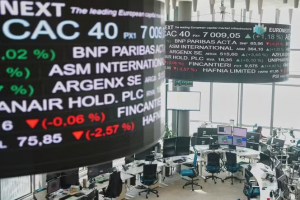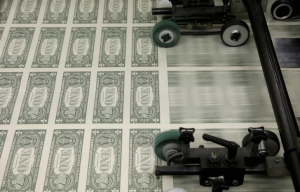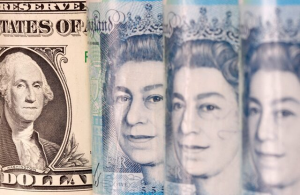Gold price (XAU/USD) trades close to a more than three-week low around $2,285 in Wednesday’s European session. The precious metal weakens as the US Dollar and bond yields strengthen amid firm speculation that the Federal Reserve (Fed) will opt for maintaining a restrictive interest rate environment for a longer period due to inflation remaining persistently higher than expected in the first quarter of the year.
In this context, 10-year US Treasury yields move higher to 4.69%. The US Dollar Index (DXY), which tracks the US Dollar’s value against six major currencies and is negatively correlated to the Gold price, jumps to a two-week high of around 106.50. The US Dollar remained on the backfoot last week after weak growth in Q1 Gross Domestic Product (GDP) raised concerns over the country’s economic outlook. However, it bounced back strongly on Tuesday after the US Bureau of Economic Analysis (BEA) reported strong Q1 Employment Cost Index numbers.
The US Employment Cost Index is generally driven by a strong wage growth environment in which labor demand remains strong. The index rose by 1.2% in the first quarter, against the consensus of 1.0% and the prior reading of 0.9%. It is another indication that price pressures have remained hot in the January-March period.
Daily digest market movers: Gold price weakens while US Dollar hovers near almost four-week high Gold price falls sharply, below the crucial support of $2,285, on expectations that the Federal Reserve will maintain a hawkish guidance on interest rates in its monetary policy meeting after keeping interest rates steady in the range of 5.25%-5.50% for the sixth straight time. A slew of hotter-than-expected inflation readings so far this year indicate that the disinflation process has stalled. It suggests that the Fed should keep interest rates high for a longer period until policymakers gain confidence that price pressures will sustainably return to the desired rate of 2%. Prospects of interest rates remaining higher bode poorly for Gold as it increases the opportunity cost of holding an investment in it. Meanwhile, investors are keen to know about rate-cut timing and the current status of the Fed’s three rate-cut projections, indicated by March’s dot plot. The CME FedWatch tool shows that traders see the Fed begin reducing interest rates from the September meeting. In Wednesday’s session, before the Fed’s interest rate decision, ADP Employment Change and the ISM Manufacturing PMI data for April will be published in the early New York session. Economists have forecasted that fresh US private payrolls increased by 175K, slightly lower than the prior advance of 184K. The Manufacturing PMI is estimated to have dropped to 50.0 from 50.3 in March. From the Manufacturing PMI report, investors will keenly focus on the New Orders subcomponent. The preliminary PMI survey by S&P Global for April reported that output growth cooled in line with demand weakness as new orders decreased for the first time in six months, albeit dropping only modestly. Falling new business was signalled among manufacturers and service providers alike. Upbeat employment and factory data would improve the US economic outlook, while weak numbers will deepen concerns over a slowdown.
Gold reported steep losses after a breakdown of the Bearish Flag formation in the four-hour time frame. The Bearish Flag formation demonstrates a consolidation move after a sharp correction, generally following the ongoing trend. The near-term outlook is bearish as the Gold price is trading below the 20-period Exponential Moving Average (EMA), which is at $2,312.
On the downside, March 23 high at $2,223 will be the major support for the Gold price. The 14-period Relative Strength Index (RSI) oscillates in the bearish range of 20.00-40.00, suggesting that momentum has leaned towards bears.













